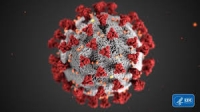COVID-19 Self Isolation and Hand Washing Are Important
Monday 09 March, 2020 Written by Politico/UK overnment
COVID-19 - The big question now is exactly when U.K. ministers and officials will decide the time is right to start implementing so-called social distancing measures to try to slow the virus’ spread. While newspaper headlines continue to focus on a supposed big moment when Britain officially switches to “delaying” rather than “containing” the virus, it’s worth remembering Chief Medical Officer Chris Whitty told MPs last week that the shift has largely already happened.
“What we’re not going to be doing is a step move from ‘contain’ to ‘delay,'” Whitty told the Commons health committee last Thursday. “What we are doing is putting greater and greater priority on the elements of this which are ‘delay’ … We are now basically mainly ‘delay’ … We are mainly in the second stage.”
Deputy Chief Medical Officer Jenny Harries suggests the first social distancing steps will be asking people to work from home where possible, and encouraging at-risk groups — chiefly the elderly and patients with underlying conditions — to self-isolate. “We are stepping up planning to delay the peak of the outbreak,” she writes. “We may in the future recommend certain measures, such as working from home or asking more vulnerable people to stay at home.”
About the Illness.
Coronaviruses are a family of viruses common across the world in animals and humans. Certain types cause illnesses in people.
For example, some coronaviruses cause the common cold; others cause diseases which are much more severe such as Middle East Respiratory Syndrome (MERS) and Severe Acute Respiratory Syndrome (SARS), both of which often lead to pneumonia.
COVID-19 is the illness seen in people infected with a new strain of coronavirus not previously seen in humans.
On 31 December 2019, Chinese authorities notified the World Health Organization (WHO) of an outbreak of pneumonia in Wuhan City, which was later classified as a new disease: COVID-19.
On 30 January 2020, WHO declared the outbreak of COVID-19 a “Public Health Emergency of International Concern” (PHEIC).
Based on current evidence, the main symptoms of COVID-19 are a cough, a high temperature and, in severe cases, shortness of breath.
As it is a new virus, the lack of immunity in the population (and the absence as yet of an effective vaccine) means that COVID-19 has the potential to spread extensively. The current data seem to show that we are all susceptible to catching this disease, and thus it is also more likely than not that the UK will be significantly affected.
Among those who become infected, some will exhibit no symptoms. Early data suggest that of those who develop an illness, the great majority will have a mild-to-moderate, but self-limiting illness – similar to seasonal flu.
It is, however, also clear that a minority of people who get COVID-19 will develop complications severe enough to require hospital care, most often pneumonia. In a small proportion of these, the illness may be severe enough to lead to death.
So far the data we have suggest that the risk of severe disease and death increases among elderly people and in people with underlying health risk conditions (in the same way as for seasonal flu).
Illness is less common and usually less severe in younger adults. Children can be infected and can have a severe illness, but based on current data overall illness seems rarer in people under 20 years of age.
So far, there has been no obvious sign that pregnant women are more likely to be seriously affected.
Given that the data are still emerging, we are uncertain of the impact of an outbreak on business. In a stretching scenario, it is possible that up to one-fifth of employees may be absent from work during peak weeks. This may vary for individual businesses.
We do not yet have entirely complete data on this disease. But as we learn more about the virus, its effects and its behaviour (for example, the timing and extent of the peak of an outbreak, its precise impact on individuals), we will be able to revise estimates of its potential spread, severity and impact. We will then review, and (where necessary) adapt this plan accordingly.
Work is in hand to contain the spread of the virus. This includes extensive guidance provided to individuals returning from areas where there are cases being reported, and encouraging self-isolation as the primary means to contain the spread of the disease. Given that there is currently neither a vaccine against COVID-19 nor any specific, proven, antiviral medication, most treatment will therefore be towards managing symptoms and providing support to patients with complications.
ABC Comments, have your say below:

Leave a comment
Make sure you enter all the required information, indicated by an asterisk (*). HTML code is not allowed.
Join
FREE
Here










